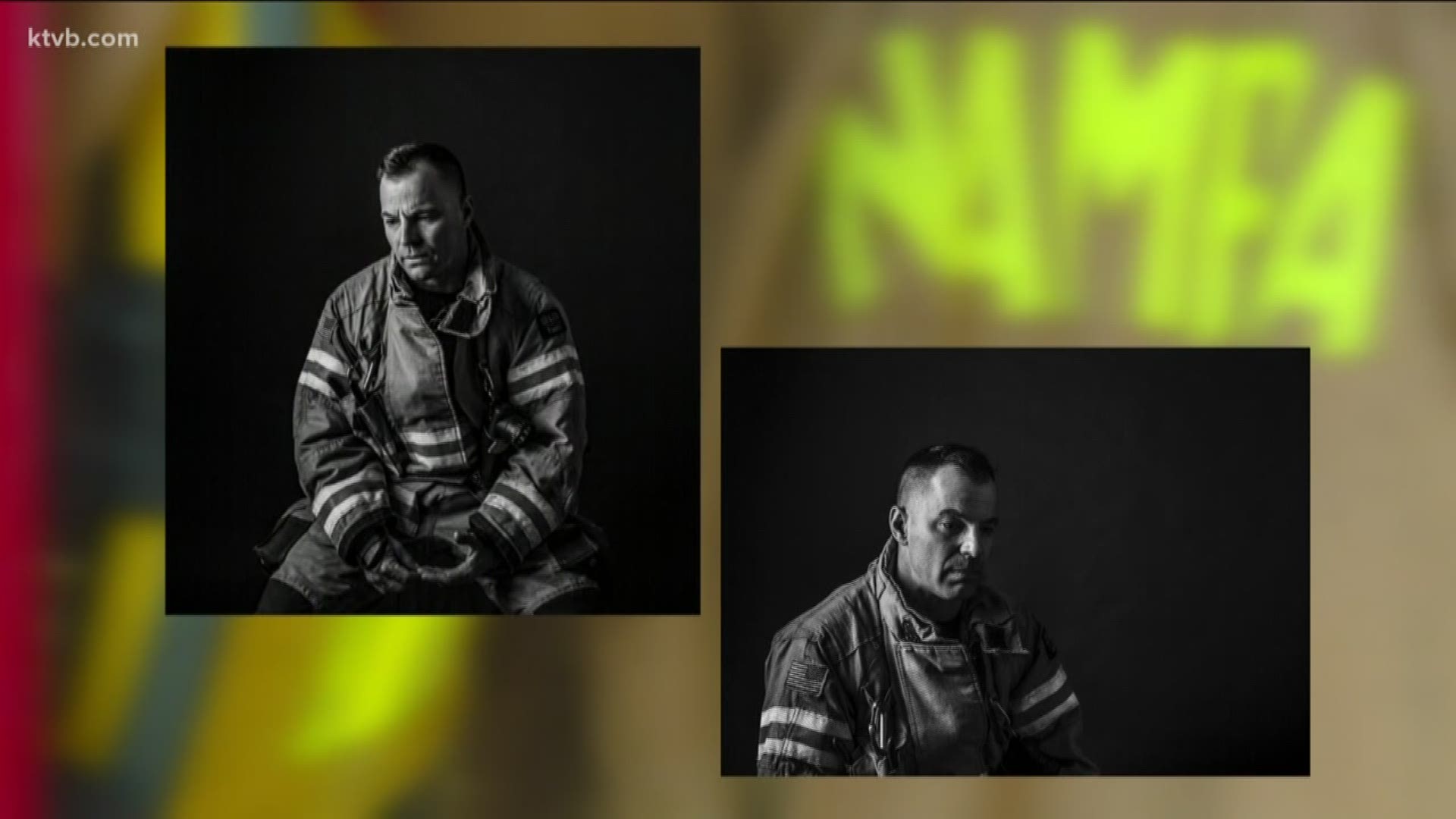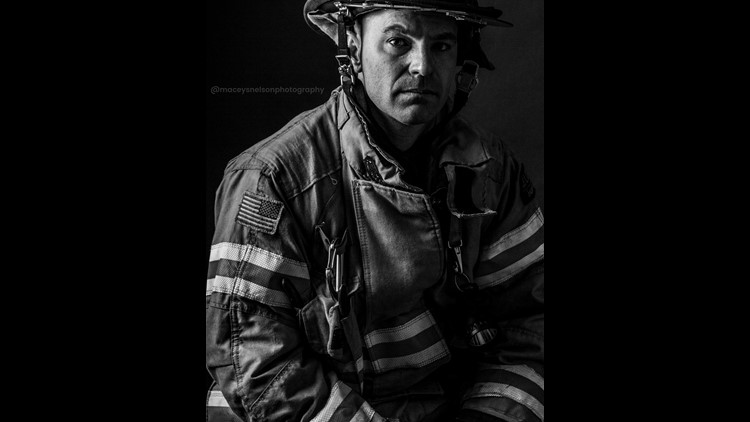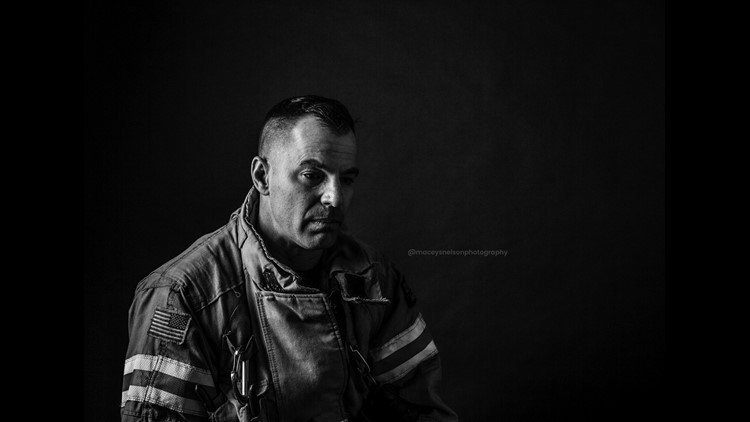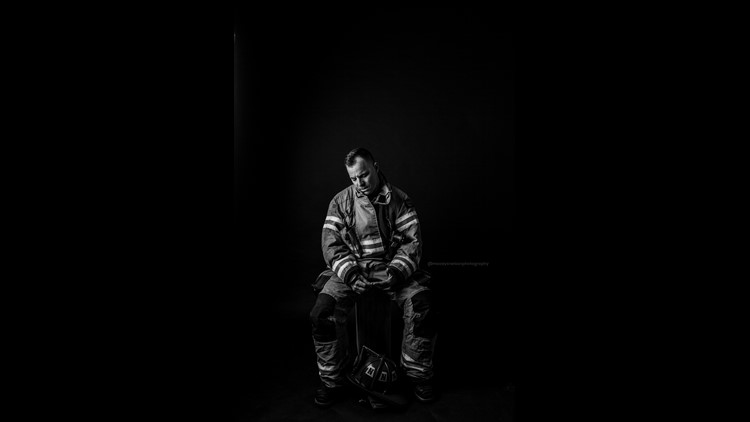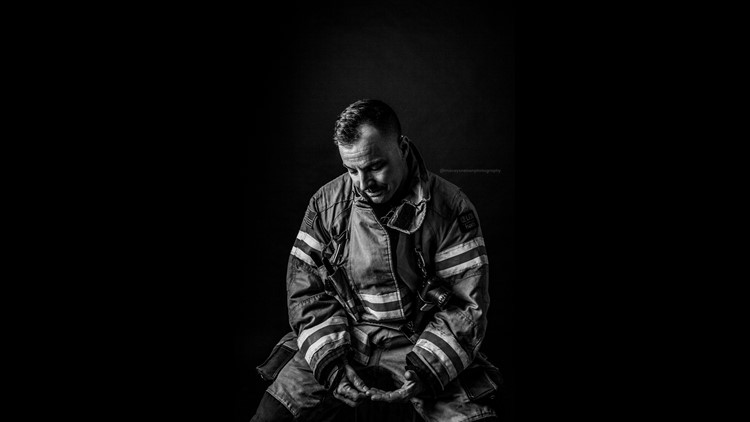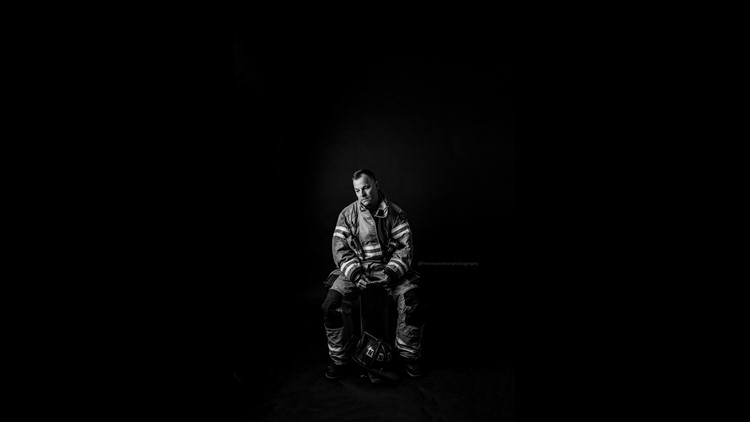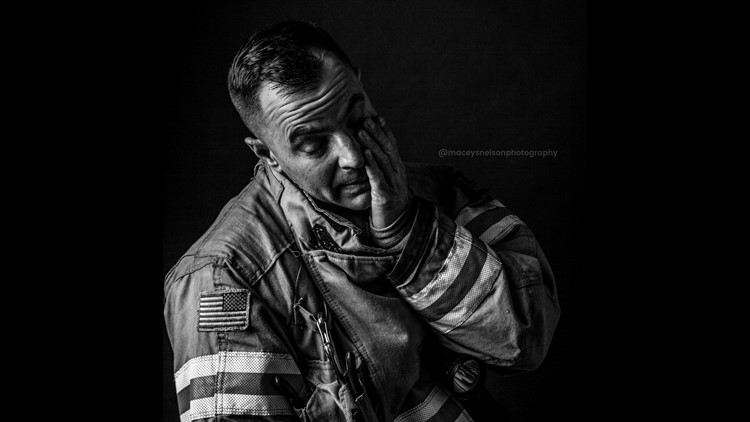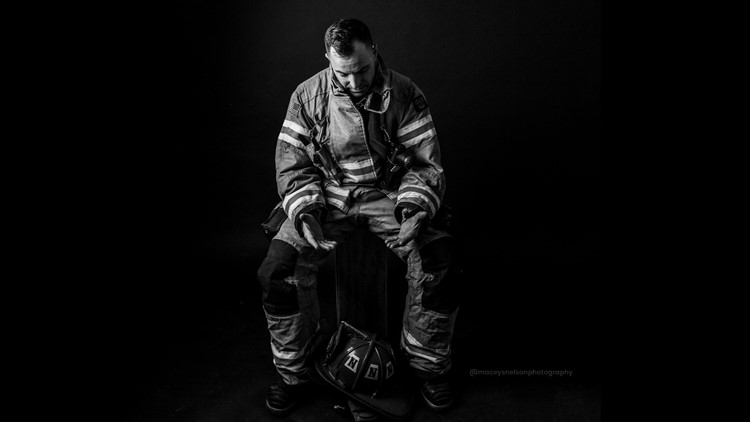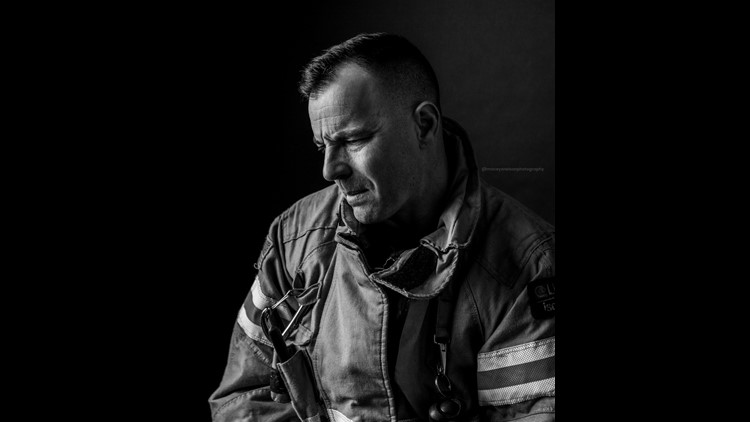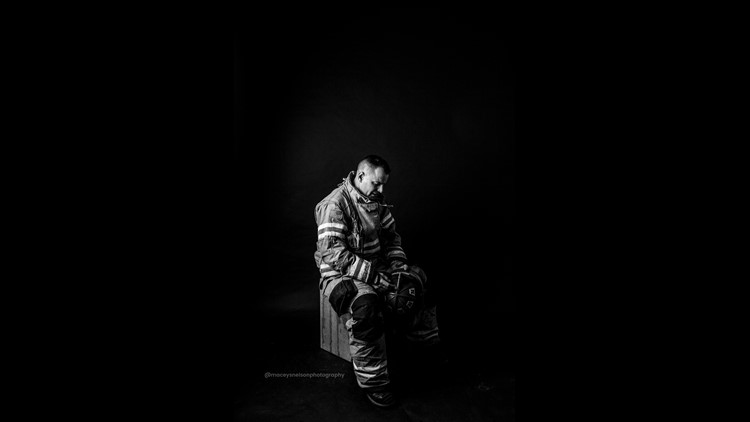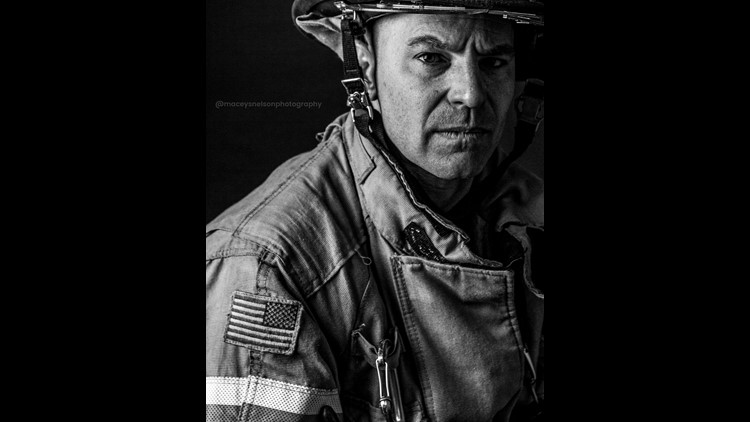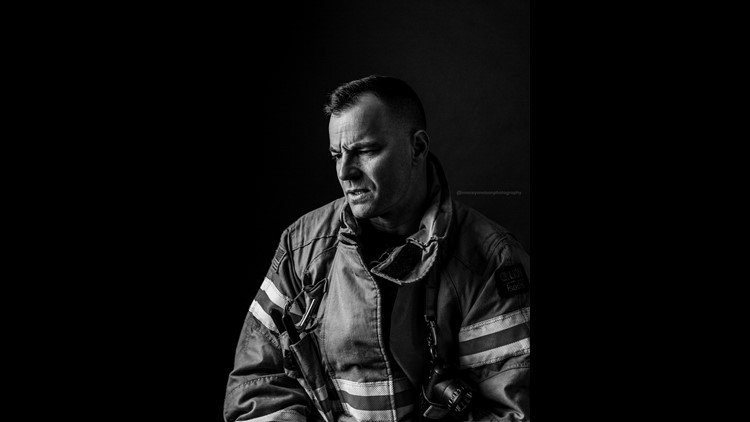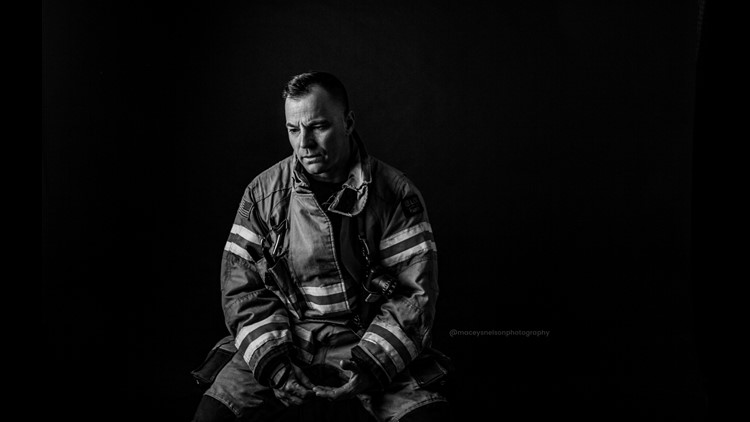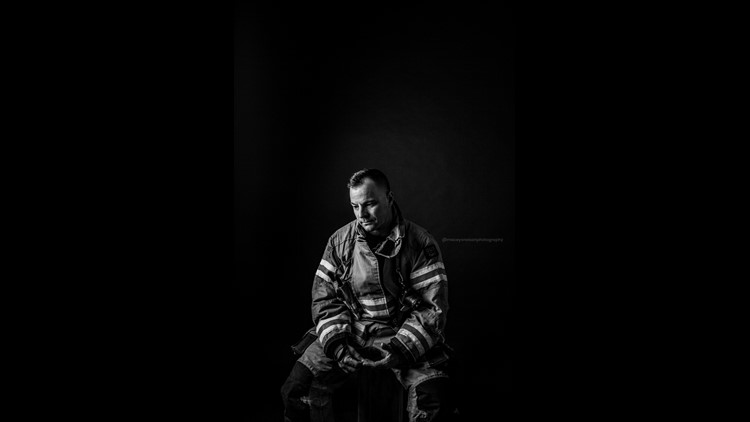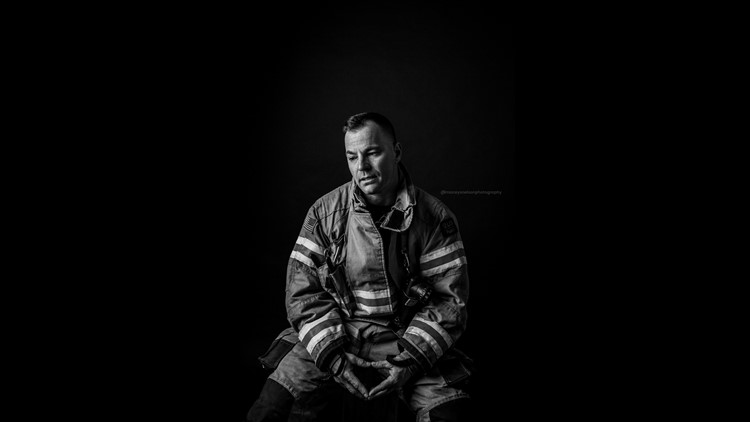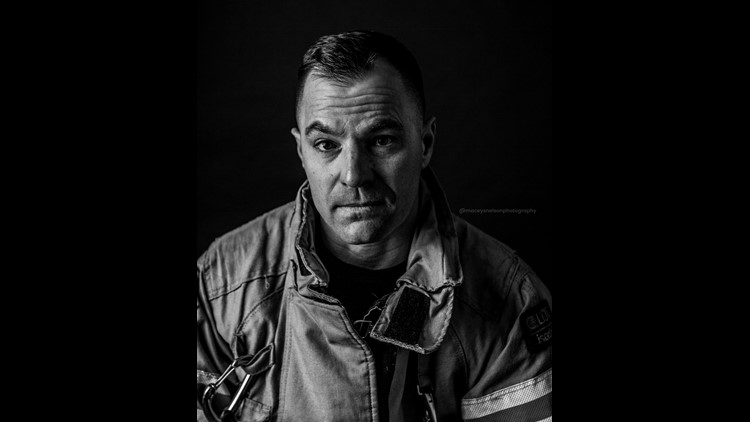NAMPA, Idaho — Nampa Fire Captain Frank Beauvais tells people that being a firefighter isn't just his job, it's who he is. He's been with the Nampa Fire Department for over twenty years. He's also raising his family and running a business there - Nampa is home.
"Nampa has given me so much, everything actually. I raised my hand and I volunteered to do this and I love my job," Captain Beauvais said.
First responders see so much tragedy, it's sometimes difficult to process. Captain Beauvais is one of many who have struggled with PTSD (Post Traumatic Stress Disorder) or PTSI (Post Traumatic Stress Injury).
"We answer calls to people's worst day, and we just try to make it better. Then we come back to the station, rinse and repeat, with that comes scars and stuff," he explained.
Beauvais isn't exactly comfortable talking about the emotional impact of being a first responder. It's taken him years to be able to open up and get to this point.

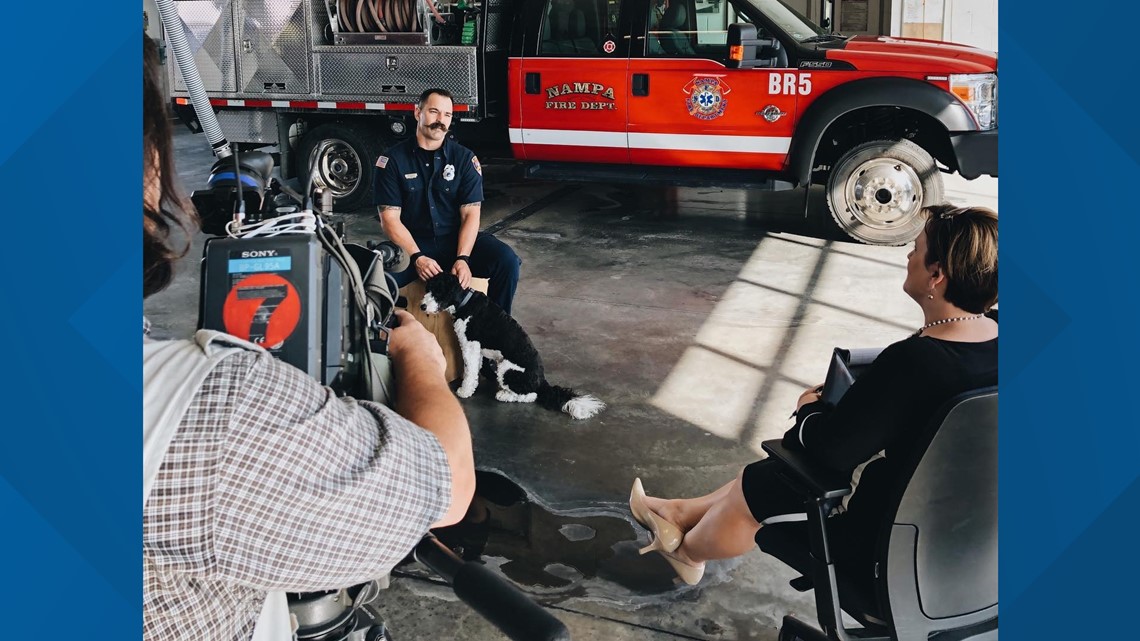
"Even sitting here is a bit much," he said. "It was kind of a slow burn... I had some pretty catastrophic calls. I kind of put it away, I was just under the impression that this is part of the job."
Beauvais says he lost the ability to feel, and he was having a hard time connecting with his family. Everything felt flat.
"Probably a year and a half ago, I realized I was not living a very full life. I stopped having emotions," he recounted. "I couldn't love my wife or kids like they deserved. At one point I told my wife that she should probably divorce me because I wasn't the kind of man that she needed."
That was rock bottom for Beauvais. He says losing his family wasn't an option, he knew he had to do something. He was diagnosed with Post Traumatic Stress Injury. He says he prefers that over Post Traumatic Stress Disorder.
For Beauvais, this is an injury that he can recover from. He says using the word injury means it's not a life sentence.
"I reached out and went to a counselor and just started unpacking 20 years. It was hard. I'm a captain, I have to lead my guys, they have to have confidence in me, and to let them know that sometimes I do hurt is difficult. It sounds weird because I trust these guys with my life," Beauvais said about telling his fellow firefighters. "But, it's better to bring people in, you feel like you're not alone. Suddenly there's hope and I had lost hope."
Beauvais also reached out to a good friend, Macey Snelson, who is a photographer. He had the idea to take photos to demonstrate what he was feeling.
"He wanted to share with me what was going on with his PTSI, and he said he had this idea for a photo session. He was having trouble putting into words what he was experiencing," Snelson said. "This wasn't something we were going to pose, I was just going to have him talk. He was able to trust me luckily and be very vulnerable and honest, and just through that experience, I captured moments that I knew would show what he was feeling and where those emotions were coming from."
Powerful photos of Nampa firefighter reveal the pain of Post Traumatic Stress Injury
The photos taken in his fire gear are raw, powerful, vulnerable, and they reveal the pain of being a first responder. It was a lot for Beauvais to take in.
"They were difficult to look at, I didn't like it, I didn't want to look at them," he said. "But, as we started talking more about it, I had a different view. I could look at it as a way of helping others, which is what I do as a fireman. Then it felt better and I could look at them a little differently."
Snelson posted one of the photos on a Facebook page for photographers. The response was incredible. She says so many people told her they could relate to what they were seeing in Captain Beauvais' eyes.
"There were over a thousand interactions on that post, it snowballed pretty quickly," she said.
The Idaho Press also featured the photos in one of their stories. That helped start the conversation in our community about the realities of PTSD/PTSI. People started reaching out to Beauvais, and to Snelson. The messages, letters, and calls were overwhelming.
"I've had nurses, firefighters, I've had police officers, I've had a 911 operator reach out. People are relating to it, people are seeing their loved ones in it, people are seeing themselves in it," Snelson said about the photo shoot. "It starts with his story, but now it's multiple stories. Now, we can shift this into how can we help others."
It's still not easy for Beauvais to come face to face with his photos.
"That's hard for me to process," he said about the powerful pictures. "I guess I'm just proud of moving forward, and coming out the other side. Two days ago, my son thanked me for going to counseling. I thought I'd been hiding it from them, and he said hey, I really appreciate the work you've been doing. It makes you a better dad, and I love you. I thought I had kept it from them because I didn't want to hurt them, so that was really cool."
For Beauvais, being real and letting his emotional guard down in front of the camera is worth it, if others are inspired.

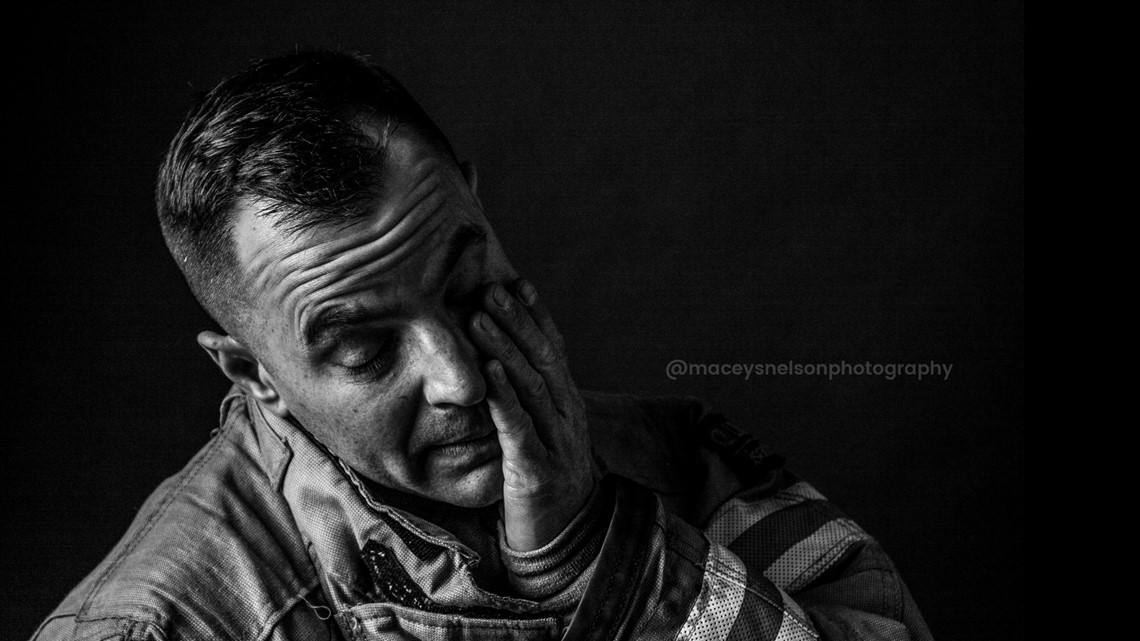
"I just want that one guy or gal who is having a hard time, if they can see this and it just gives them a little hope and they get some help, then all the discomfort of being in front of a camera is totally worth it," Beauvais said. "I've had firemen reach out from all over the country reach out so it feels good."
Snelson said her goal now is to continue to work to break the stigma of PTSD/PSTI and to continue the conversation through her photos. Snelson says she would love to connect with any first responders who have experienced or are experiencing trauma and would like to have their own photo session.
Watch more '7's Hero'
See them all in our YouTube playlist:

